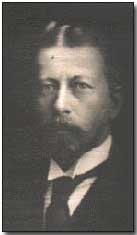Encyclopedia - The Kiel Mutiny
 The Kiel Mutiny was
triggered by secret German Navy plans to launch a final suicide attack upon
the British Royal Navy as the war reached its conclusion at the end of
October 1918.
The Kiel Mutiny was
triggered by secret German Navy plans to launch a final suicide attack upon
the British Royal Navy as the war reached its conclusion at the end of
October 1918.
Although the mutiny eventually spread across Germany and ended in revolution it was initiated by sailors attached to the High Seas Fleet.
Naval Supreme Commander Admiral Reinhardt Scheer, in conjunction with a few close allies including Franz von Hipper and Adolf von Trotha, determined in October 1918 to plan and launch a major attack against the Royal Navy's Grand Fleet by the High Seas Fleet in an attempt to restore the lustre of the tarnished German Navy. As much due to Kaiser Wilhelm II's protectiveness as the activities of the Royal Navy, the German Navy had not enjoyed a successful war.
Scheer was however aware that plans for a large-scale naval attack at such a late stage of the war would almost certainly be vetoed by the government of Prince Max von Baden. He therefore chose not to inform von Baden of his plans. Nevertheless word of the impending attack quickly reached sailors at both Kiel and Wilmershaven, both key German naval ports.
Determined not to embark upon a mission which they believed would end only in disaster - and with a belief that the war was approaching its conclusion - many sailors took unauthorised leave or refused to accept orders to put to sea on 30 October 1918. High Seas Fleet commander Hipper realised that the planned operation could not be executed in such circumstances. The plan was consequently abandoned.
This did not however bring an end to naval unrest. In spite of the despatch of Gustav Noske from Berlin as Kiel's new Governor the mutiny began to spiral. Kiel base commander Prince Heinrich of Prussia was obliged to flee under cover of disguise. Workers' and sailors' councils were formed, actions which soon spread to industrial workers at Kiel. Only U-boat crews were seen to remain loyal.
Demands were formulated requiring both immediate peace and reform. The call was taken up and spread across Germany within the space of a week with revolts in Hamburg, Bremen and Lubeck on 4-5 November and in Munich on 7-8 November.
Such was the air of widespread discontent that a group of parliamentary socialists led by Philipp Scheidemann proclaimed the onset of revolution on 9 November, an action which finally sealed the fate of both the Kaiser and the war's closure.
A 'Base Rat' was a soldier perpetually at the base, typically in conditions of comfort and safety.
- Did you know?
